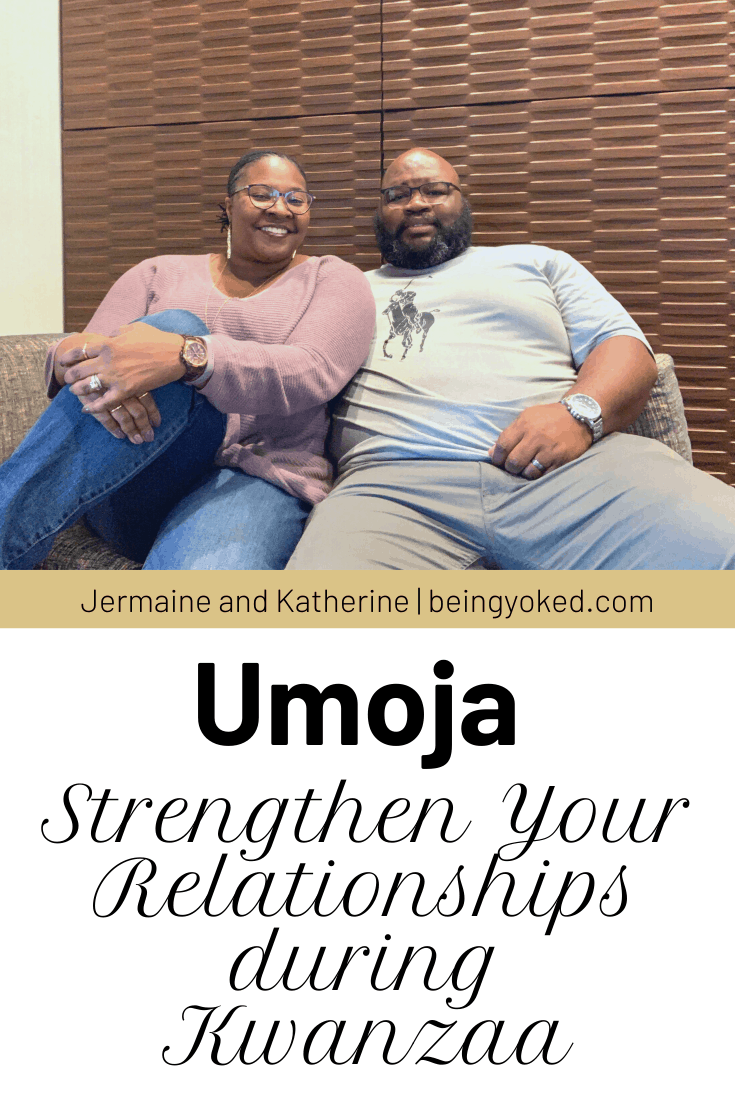Kwanzaa is an African American celebration of community, family, and culture that helps us to reconnect with our African roots. With 2019 being declared the Year of Return in Ghana, celebrating Kwanzaa this year is all the more special for our community.
Centered around family and community, Kwanzaa is celebrated every year from December 26th – January 1st.. There are 7 days in the celebration of Kwanzaa:
- Umoja (Unity)
- Kujichagulia (Self-Determination)
- Ujima (Collective Work and Responsibility)
- Ujamaa (Cooperative Economics)
- Nia (Purpose)
- Kuumba (Creativity)
- Imani (Faith)
what is Umoja?
The first day of the Kwanzaa celebration is Umoja. Umoja is the principle that supports and encourages the value of unity. It directs the desire to exist peacefully with your family and community.
Romans 12:18 encourages us, ” If it is possible, as far as it depends on you, live at peace with everyone.”
In order to live at peace with others and in unity with others, you first have to cultivate a mindset that seeks out peace.
So, what does a peaceful person look like and how does that translate into a peaceful coexistence with those around you?
3 Characteristics of a Peaceful Person
- A peaceful person is humble. A humble person puts the needs of others before themselves. Not in a detrimental or doormat kind of way. In a way that shows the other person with an agape love. Ephesians 4:2 instructs us to “Be completely humble and gentle; be patient, bearing with one another in love.” Being a humble person brings peace and calm.
- A peaceful person is patient and understanding. An understanding person is skilled at practicing empathy with others. Even if you don’t agree with everything your partner does, be present without judgement. Exercise patience with others because, certainly, true love is patient. Remember 1 Cor 13?
- A peaceful person is forgiving. But forgiveness is probably one of the hardest characteristics to possess. To forgive another is to release the hurt that you’ve received. It allows you to move forward in your life. Our duty is to forgive others…just as we’ve been forgiven (Ephesians 4:32.)

How does the Umoja principle work in your relationship?
Umoja exercises the importance of unity with those around you. Most importantly, when working for peace with others, start with the person closest to you. In marriage, you are teammates with your significant other. It’s the two of you against the world. Peace in your home is what allows it to be your sanctuary; it’s your safe haven against all of the struggles and strife.
When incorporating Umoja into your own relationship, there are very easy ways to practice unity with your partner.
- Pick your battles. You’re not going to agree on everything and that’s ok. Before allowing yourself to get upset about something, decide if this is something that is going to bother you in a week or even if you’ll still be angry about it in a year. If it’s not…or if it’s something that you can resolve on your own, live like Elsa and let it go.
- Spend quality time together. Take the time to remember (or learn) what it is that you have in common with each other. Subsequently, you’ll take an active approach to strengthening your relationship.
- Keep the lines of communication open. Is there discord in your relationship? To clarify, it can only be resolved is if the other person knows it’s there. Talk to each other honestly and with kindness. Work toward a resolution that can bring you back to center.
Need a way to make this practical? Click here for the Principles of Kwanzaa for a Beautiful Relationship Workbook; you can use it to work through simple, applicable exercises each day of the celebration.
Happy Kwanzaa!

Leave a Reply